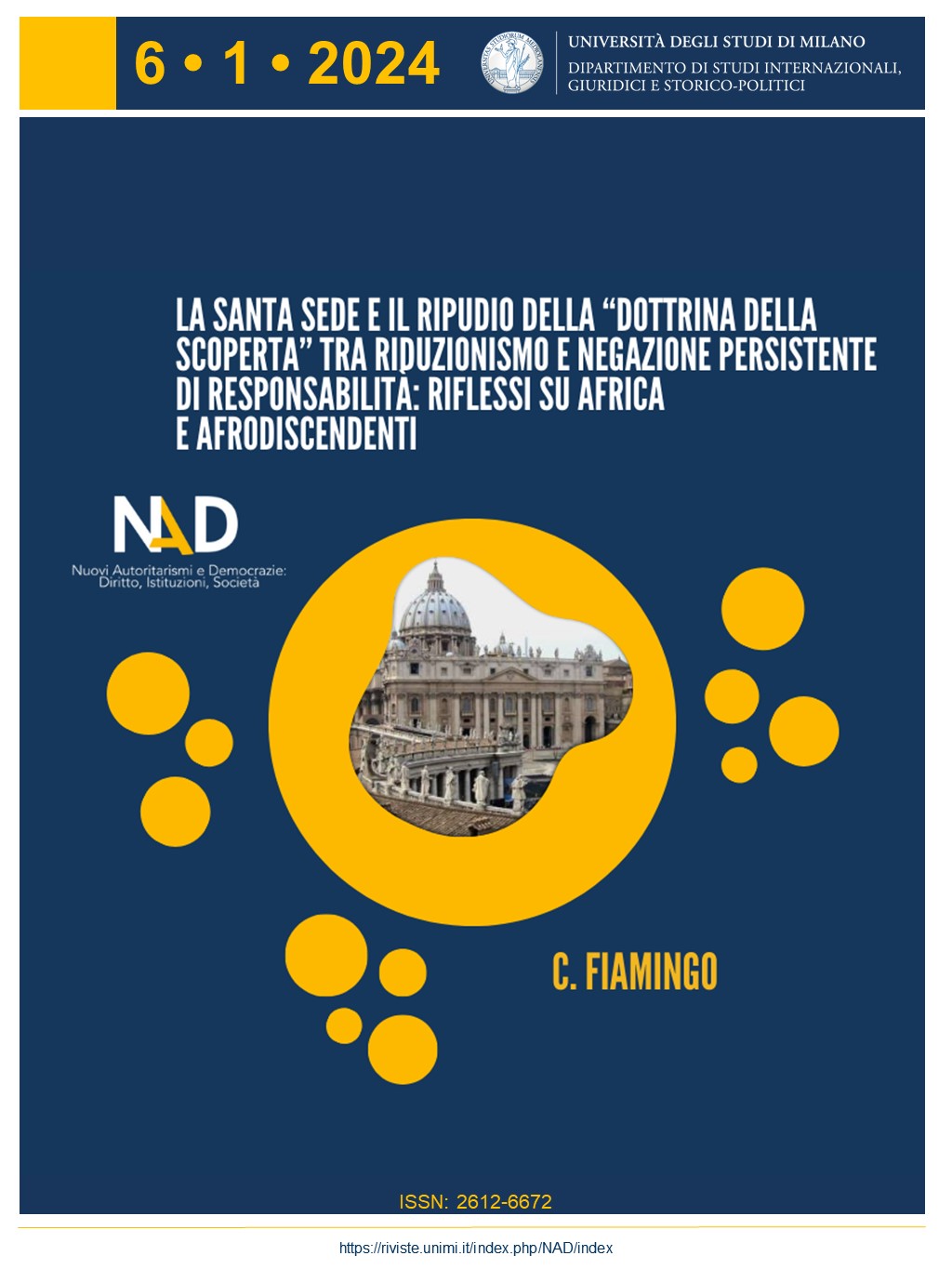The Holy See and the repudiation of the doctrine of discovery between reductionism and denial of responsibility
DOI:
https://doi.org/10.54103/2612-6672/23191Keywords:
Doctrine of discovery, Papacy, History of International Law, Human Rights, Colonialism, Autochthonous, Africa, ReparationsAbstract
Although the Vatican’s recent rejection of the doctrine of discovery is indeed welcome, its silence on any political responsibility for those 500-year-old papal bulls that authorized colonial powers to seize indigenous lands means that the battle is only half won. Worse still, the Vatican’s avoidance of any connection between the mass crimes endorsed against non-Christians and their consequences indicates that it is missing the point. As the bulls were issued by «representatives of God on Earth», such an implicit denial is a structural weakness that could hardly round off the «architecture of reconciliation» Pope Francesco is said to be aiming at. This essay aims to recall historical evidence of the Papacy’s direct and indirect responsibility while discussing the circumstances lying at the origins of the hierarchical organization of this world, which impacted not only the American but also the African continent, with permanent consequences for generations of its peoples and their descendants in the diaspora.
References
La “dottrina della scoperta”. Nota congiunta dei Dicasteri per la cultura e l’educazione e per il servizio dello sviluppo umano integrale, in L’Osservatore Romano, 30 marzo 2023;
P. O. Adiele, The Popes, the Catholic Church and the Transatlantic Enslavement of Black Africans 1418-1839, Georg Olms Verlag, 2017;
A. A. Cassi, Ultramar. L’invenzione europea del Nuovo Mondo, Laterza, 2007;
B. De Sousa Santos, “Para além do pensamento abissal”, Novos Estudos CEBRAP, Vol. 79, 2007, 71-94;
V. Lavou Zoungbo (a cura di), Bartolomé de Las Casas: Face à l’esclavage des Noir-e-s en Amériques/ Caraïbes. L’aberration du Onzième Remède (1516), Presses universitaires de Perpignan, 2011;
M. Geuna (a cura di), Guerra giusta e schiavitù naturale. Juan Ginés de Sepúlveda ed il dibattito della Conquista, Edizioni Biblioteca Francescana, 2014;
H. W. French, Born in Blackness: Africa, Africans, and the Making of the Modern World, 1471 to the Second World War, WW Norton & Co, 2021;
G. Tosi, Bartolomé de Las Casas (Siviglia 1484 - Madrid 1566), in Rivista di filosofia del diritto internazionale e della politica globale: Jura Gentium, 2009.

Downloads
Published
How to Cite
Issue
Section
License
Copyright (c) 2024 Cristiana Fiamingo

This work is licensed under a Creative Commons Attribution-NonCommercial-NoDerivatives 4.0 International License.









